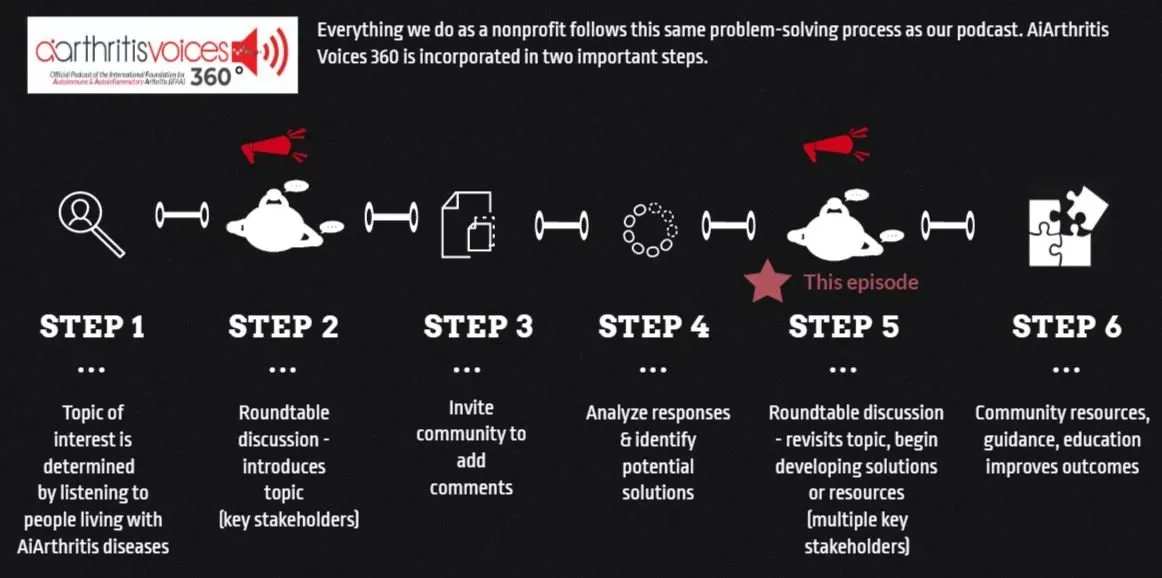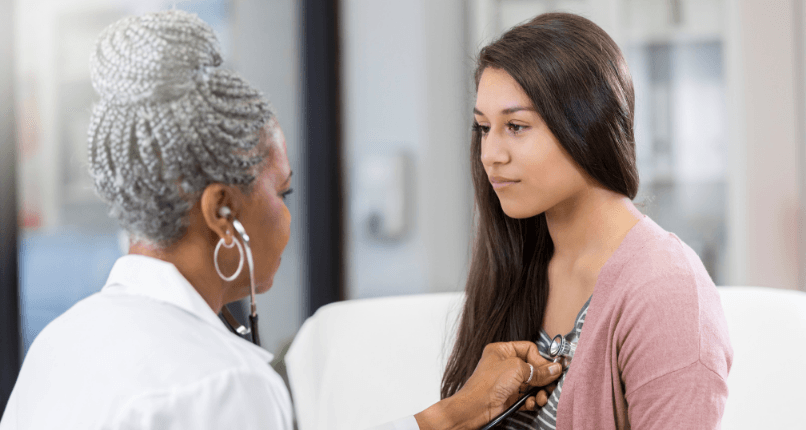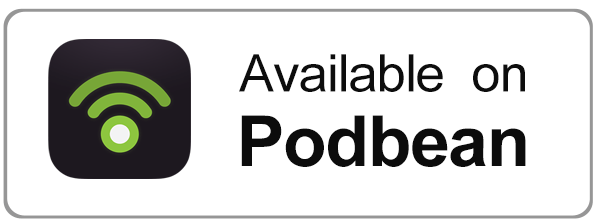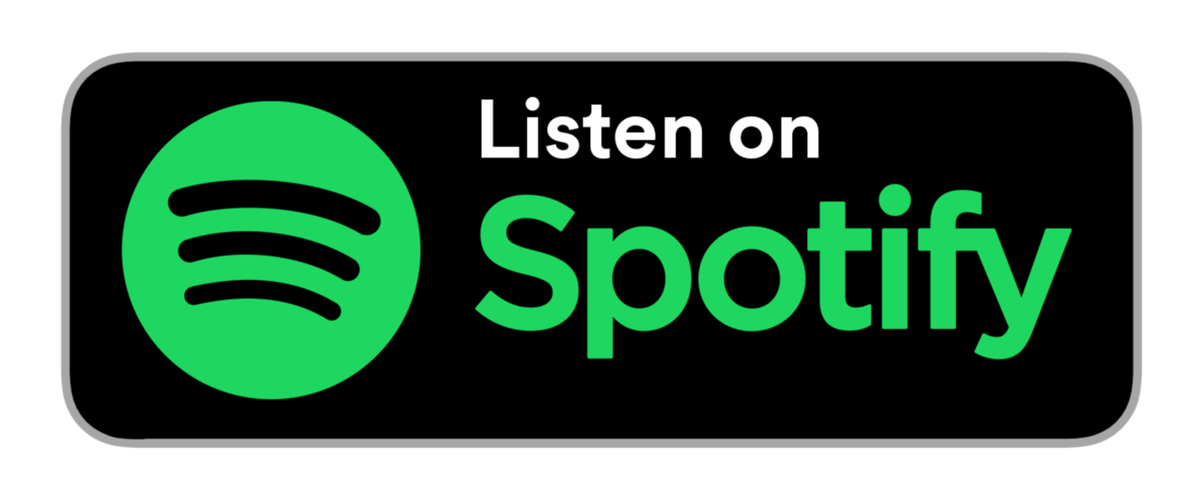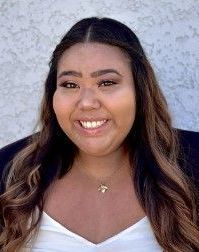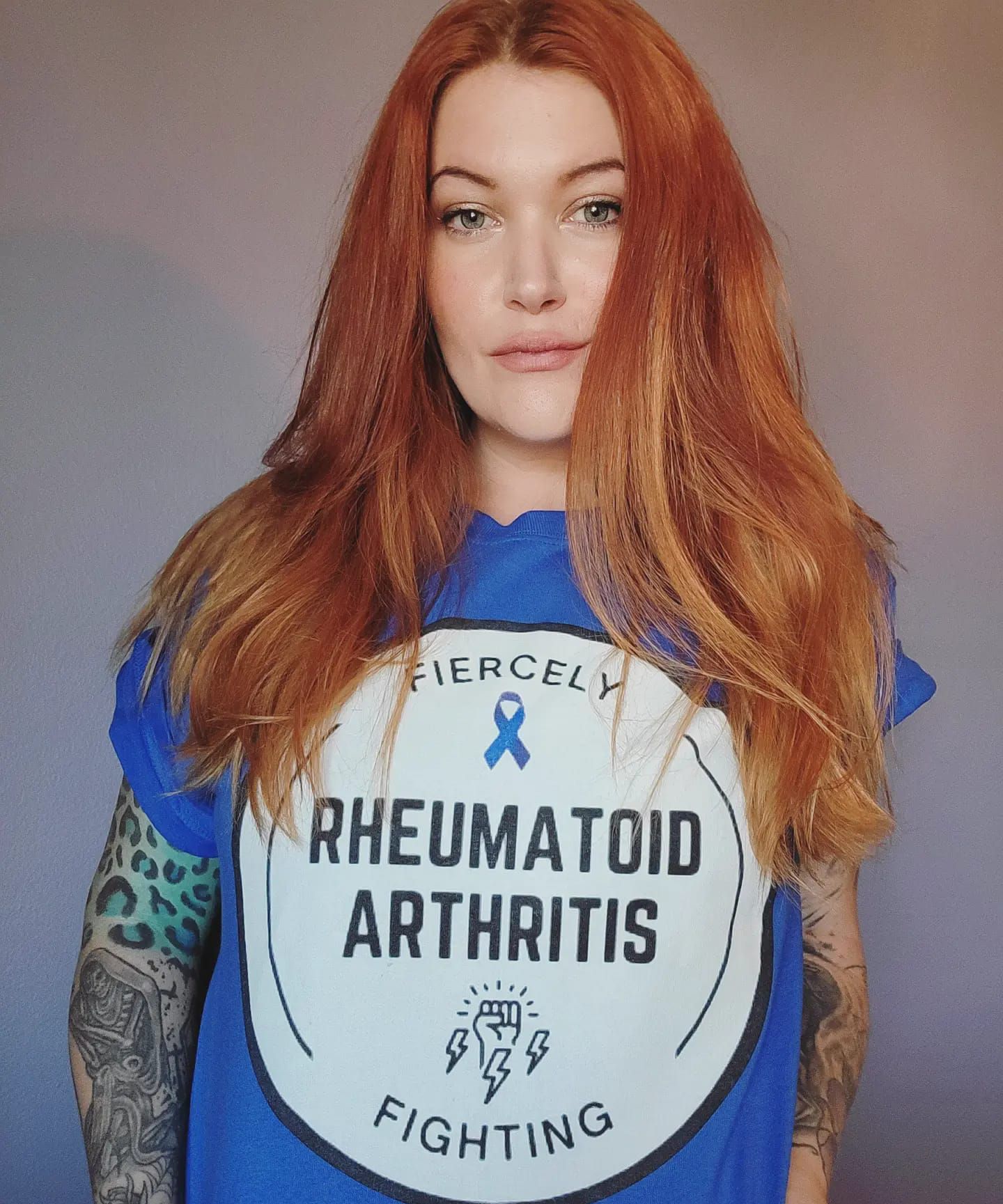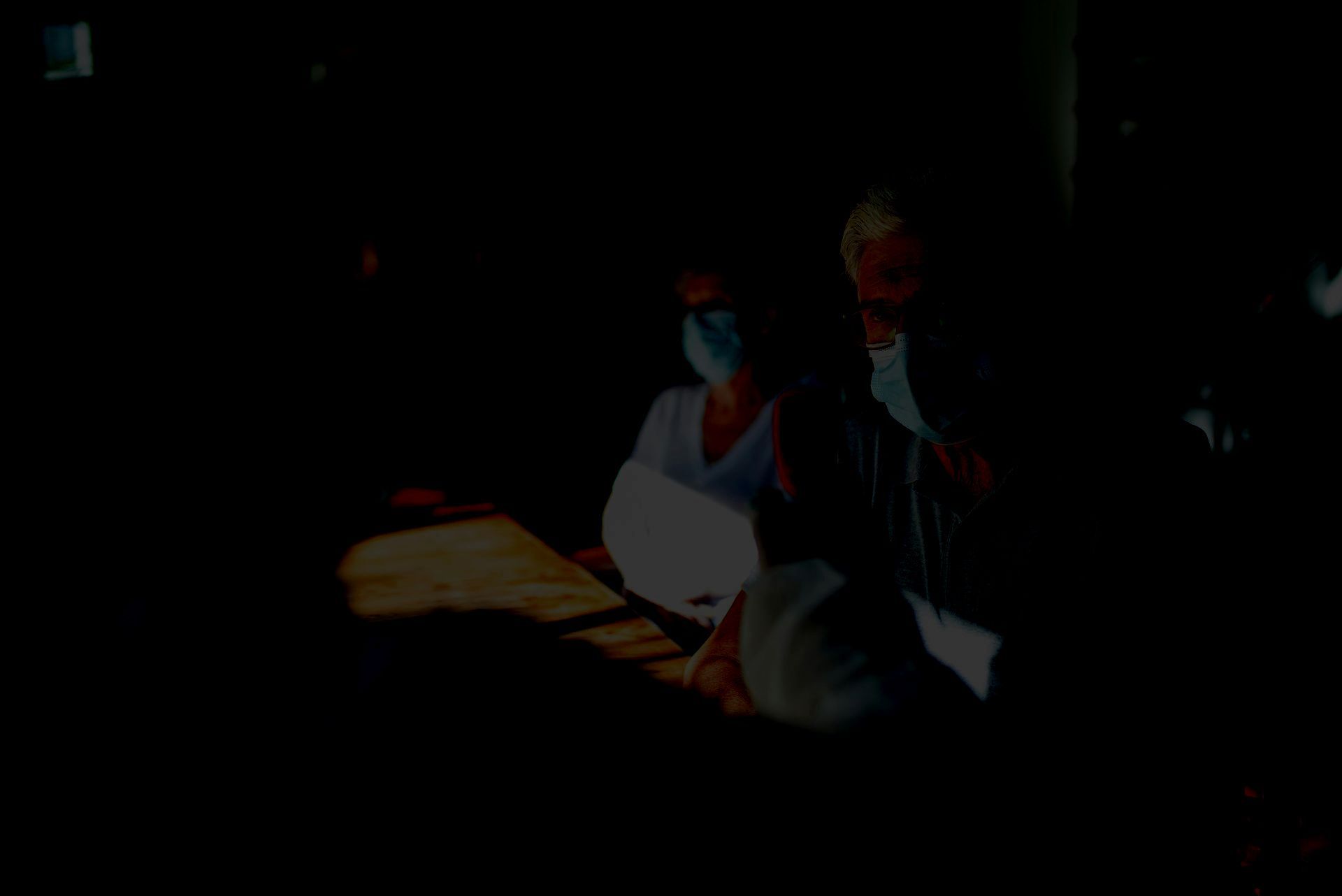[00:00:00] Leila: Welcome to AiArthritis Voices 360. This is the official talk show for the International Foundation for Autoimmune and Autoinflammatory Arthritis, or AiArthritis for short. My name is Leila P. L. Velate and I am one of your co hosts today. I'm a person living with lupus and Sjogren's disease and I am also the health education manager here at AiArthritis.
I am joined by my co host and fellow AiArthritis staff member. Many of you may know her as Chronic Eileen. Hey Eileen, why don't you tell everybody a little bit about yourself and your work that you do with AiArthritis and as a rheumatoid arthritis patient advocate.
[00:00:45] Eileen: Hi, thank you so much, Leila. It's wonderful to be here and chat about this topic.
Yeah, so I'm a rheumatoid arthritis advocate from Vancouver, British Columbia. Many of you know me online as Chronic Eileen or writing for Creaky Joints. I do a little bit of a lot and so I do a number of things with volunteering for organizations in Canada or with content creation. Most of my stuff can be found on Chronic Eileen, or Creaky Joints, or the AiArthritis website.
I have been working as the Community Awareness Assistant for just over a year now, and helping build more resources for patients just like me, and just like
[00:01:26] Leila: Leila. Yep, absolutely. And that's definitely what we're going to be talking about today. So thank you for the lead into that. Today we are going to be telling you about a project that we've been working on for the past few months.
We've been brainstorming on the best way to display our resources on our website. As our general resources tab that we have is starting to get filled up with a lot of different types of resources. And so we felt like we needed a way to try to organize them. We've noticed an emphasis in the past few years on early detection and diagnosis and as well as remission.
And so we wanted to make a basically a wave to display that goes through the patient journey. There's a lot of different stages that people may be in when it comes to their disease. And so we thought that dividing the resources by those different stages would be a really good way to intuitively have the patient figure out where they needed to go in order to find the resources that they were looking for.
And so the patient journey, it's a buzzword that we hear a lot, but what does that really mean? What do you think, Eileen?
[00:02:35] Eileen: I think every patient has their own journey, but there are stages of our journeys that are very similar. This can be from, the time it takes to get our diagnosis when we are undiagnosed, we're that mystery patient, to when we're on the road to remission.
And there's other parts of our journey, like our support network. When we get a diagnosis, how to manage the disease at any point, especially when it's chronic, because chronic means forever. So these are journeys that are now lasting the rest of our lives, and the different points, they may change, they may overlap, and we wanted to showcase easy to navigate resources to help walk patients through whatever spot they are at in their journey.
[00:03:22] Leila: Absolutely. And I think this would be a good time to say our, the official six different stages that we're going to be talking about. We go into it a little bit later in, in the show, but we will all just name them out right now so that we, have a premise before we go into our own journeys.
But the six different stages of the journey or parts of the journey that kind of contribute to the whole patient journey as AiArthritis sees it is mystery patient slash undiagnosed, newly diagnosed. Living with AiArthritis disease, remission and working towards remission, caregiver or support network and comorbidities. So those are the six different sections that we will be referring to when we're talking about the patient journey. And I wanted to talk a little bit about where we are in the patient journey because we are patients ourselves. So if we were to go and try and navigate these different stages, like what would we look at, where would we look for resources, and you know, why.
I was diagnosed with lupus when I was 12 years old. I'm currently 28 years old. So it's been a really long time that I've had the diagnosis for lupus. So the mystery patient slash undiagnosed part, was it really a big part of my journey? Even newly diagnosed because my onset of my actual symptoms of lupus did not happen until I was 18.
So my journey is a little bit different where I probably wouldn't be focusing on the mystery patient or the newly diagnosed but absolutely would be looking at the living with the disease, working towards remission, caregiver support network, and comorbidities because obviously living with the disease but I know that we have a lot of cool resources there that we would have about the different little symptoms that we may see, like little symptoms that are end up being big symptoms, like brain fog, fatigue.
Those are the two that we hear so much about and, personally affect me the most. So that was, those would be what I would be looking for, but I am living with two AiArthritis diseases with lupus and Sjogren. So sometimes it can be hard to know Hey, this new symptom popped up. Where could it be from? What kind of treatment do I need for those?
So that's what I would also be looking at as well as I've been in a clinical remission from for lupus nephritis for the past three to four years. But my SLE, like my regular systemic lupus is still active, but under control with medications. A lot of my blood markers have gotten a little bit better, but still not to the point where I'm in full remission for my lupus in general.
So still looking to see where I can go to get on that remission journey. So we'll see how, that goes in the next few years. How about you, Eileen? Where are you in your patient journey?
[00:06:19] Eileen: I would say that personally, I'm on the road to remission again. It is common for when we are on remission to sometimes fall out of it for a variety of reasons.
So yeah, the road to remission. is where I'm at in my journey. And disease management, of course, we always have to figure out how to navigate living with our diseases, especially as they progress over time. We maybe used to do something that no longer works, so we have to find new self care or management.
But also, I would say that all of the stages or in the journey are useful to me as somebody who is on social media. I get lots of patients who message me about, seeking what their diagnosis might be, or they're newly diagnosed, they're trying to understand why they have more than one form of AiArthritis or arthritis starting to understand, how they can better communicate with their support network.
So all the different stages in the patient journey are useful in so many different ways.
[00:07:24] Leila: And I totally agree, I didn't even think about that part of, yeah, even with me on social media, I've been maybe about a year on social media, specifically TikTok, and so I've gotten a few different people asking me, hey my, in law thinks that I might have lupus, like, how do I go about navigating that?
And I'm like, It's a lot, but I hope, we do have some resources. And so I was able to send her our mystery patient guidance that we have, which we are consistently trying to make sure that we update and make it the best it can be. There's a few episodes in the past that we've talked about this mystery patient phenomenon that is we really focus on here at AiArthritis.
So that's really important to be able to give some guidance to people because since we are an umbrella organization that has 22 different diseases that may have similar, similar symptoms. So I think that us focusing on the undiagnosed or the mystery patient really is cohesive and makes sense since we do deal with a lot of these different diseases that have similar symptoms.
So I think that us, reaching out to the mystery patient, to the undiagnosed, even if they don't end up having an AiArthritis disease, we can help them rule out AiArthritis diseases and still help them along their patient journey. So anybody, we really do hope that if you're undiagnosed and, looking for a diagnosis, our resources can help you to guide you in the right direction, or even, give you some help with how to speak with your doctors, how to, bring up these tough conversations.
When you are in this process, it can feel really lonely. So that's what we really want to do is just help everybody along their different stages of the journey.
[00:09:08] Eileen: I agree. What do you think your next stage of the journey will be?
[00:09:13] Leila: I hope it's going to be remission. I, I've been hearing a lot about really cool new treatments in the lupus space CAR T therapy that is possibly going to be putting a lot more patients into remission.
It's amazing what research and what new therapies are coming out on the horizon. So that's what I'm hoping is that I push myself into full remission sometime in the near future. How about you?
[00:09:37] Eileen: I, the same for me, and I think it's important that we know that these patient journeys, while it's evolving for the patients, they're also evolving for us at AiArthritis as we develop them, as new research comes out, new treatments and information.
[00:09:52] Leila: Yeah, it's definitely hard to keep up with sometimes, but it makes it really fun and unique for us to be making resources as this new research comes out. There's always light bulbs and aha moments popping up when it comes to us going to these different conferences when it, leading back to the patient journey and all of the resources that we develop.
And actually, a lot of the resources that we develop come from our Go With Us program that's been going on in the past maybe three, four years. That's where we as patients go to these scientific conferences and let other patients know about the new research that's coming out and how it might affect their patient journey.
There's another kind of plug of other resources that we have for you to all look at, if you're more interested in resources, you can check out our blog that has a lot of resources on there, or you can check out our different playlists on YouTube that have our Go With Us program videos.
Those are all very complimentary in the patient journey.
[00:10:52] Eileen: Yeah. And also, just to pop in and say about that is under each category of patient journey, we have gone through and selected the works, the blog posts, and the podcast episodes that apply best to that part of the patient journey. So it's nicely neat and organized for you.
[00:11:11] Leila: Yeah, absolutely. And some of our resources, they may, double for each of these different journey pieces as well. So some resources may be good for undiagnosed and newly diagnosed or so on and so forth. So I'm super interested to see how this goes along. And, we'll talk a little bit more about the different, we talked about the mystery patient and why we separated it that way.
We can go into a little bit about newly diagnosed and why this was a really important section for us to make sure that we highlight as well.
[00:11:43] Eileen: Yeah, I think being the, at the newly diagnosed stage is probably one of the most, confusing and drastic times you could be really stuck in the grief process or just wanting to understand your disease better or find, other people who know what you're going through.
So the newly diagnosed section is one that I think is very important and covers a number of things that podcast episodes can talk about how you can tell other people about your disease or a positive mindset can improve pain and resilience or how people are often young and living with an invisible disease.
So there's a number of resources on there that can help anybody get however they're feeling when they're newly diagnosed.
[00:12:33] Leila: Absolutely. And I think one of the biggest things is that we've seen a lot of the pharma companies that we speak with focusing a lot on early diagnosis and that newly diagnosed stage because we've seen a lot of research come up saying that the earlier you diagnose, the earlier you get treatment, the more positive outcomes that you can have and the higher chance of getting yourself into remission.
And, for a lot of people that are listening to this, that might be discouraging. See, I knew that I should have been able to get that diagnosis like I was waiting for five, ten, somewhat years to get it. And, I ended up here. with my disease progressing so much and all of these different comorbidities or issues that might pop up because of the uncontrolled inflammation.
And so just really seeing that people are starting to emphasize this part, even us as already diagnosed patients, I feel just hopeful for the new generation coming in that are getting these diagnoses, that they won't have to go through a lot of the unfortunate things that us that might have been diagnosed 10, 15, 20, 30 years ago are still living with and dealing with at this point in our journeys.
But seeing the hope for those newly diagnosed patients, even though it might seem very morbid and very sad when you first get the diagnosis. Knowing that technology and research has evolved so much and there's so much on the forefront available is really inspiring for me even still as living with the disease.
[00:14:07] Eileen: Absolutely. You can also find, support on asking yourself, who are you now? That's a real big one. When you have a diagnosis, there's losses that happen when we get newly diagnosed. So there's a resource on that or the support tool. Would you like to walk us through the support tool, Leila?
[00:14:27] Leila: Yeah, so the support tool was actually also developed from a talk show episode where two siblings talked about how even the people who support those with the disease need support as well, and what they need in order to give you the most support that you can have.
And so these are conversations that you can have with anybody in your life that you may be talking to about your disease, but it just guides you through that conversation and what questions that you can ask that you might not have thought of before. So checking out that support tool can be a really good conversation starter.
Even if you don't fulfill the full thing out, just checking it out to see the different conversations that could be had would be really good idea for not just the newly diagnosed, but any stage of the journey, it would be a really good tool to check out.
[00:15:18] Eileen: Yeah, a lot of the resources do overlap with different stages, so we could go through each one individually or you can check them all out yourself.
[00:15:30] Leila: Absolutely. And I think that, like we said, disease management is a really big thing no matter what stage you're in. And so that's the biggest section that we do plan on filling out and getting a lot of resources for because it does, go along the spectrum of the patient journey. So a lot of things like we have cardiovascular involvement when it comes to AiArthritis diseases information on exercise and diet, even brain fog, like we've been talking about that can be one of the most frustrating of our symptoms to deal with.
[00:16:06] Eileen: Absolutely. And we have the American College of Rheumatology conference coming up. So we'll be able to update all these resources with new information. Granted, there is new information on it at the conference.
[00:16:20] Leila: Absolutely. We both talked about working towards remission and what that means and how we do plan on making sure that we disseminate the information whenever we get it from those conferences.
And so we have been hearing a little bit more about remission at these conferences. It wasn't really a topic before the past two, three years. So I think that just, knowing that is again, really inspiring and giving us a lot of things to make resources on and to get that information to patients because if people aren't in the research space and aren't, privy to all of these new things that are coming along, then people may not feel the inspiration or like the positive outlook of what's on the horizon. If they have no idea that these things are coming out.
[00:17:08] Eileen: Yeah, and I think it's really important for those with AiArthritis diseases to understand what remission is because remission is not a cure.
It is low or no disease activity for extended period of time. Definition of it gets a little confusing, so it's really good to educate yourself on that one.
[00:17:27] Leila: Yeah, absolutely. And there's, when we say remission, we don't mean that there's no symptoms happening during that time. For some people, it can be that, but for a lot of people, even if they are in remission, there can still be a lot of the same side effects of the joint pain, muscle pain, fatigue, brain fog, even with lower disease markers in your blood and, it may be saying that you are in remission, but that doesn't mean that all of your symptoms go away.
We do hope that happens, but that's where I am with when I say I'm in clinical remission for lupus nephritis, that means that none of my lupus nephritis markers in my urine or blood are elevated. But, I still have that diagnosis on my chart. It's still something that's constantly being monitored because it can flare up at any time still.
[00:18:14] Eileen: And it's important to know, moving on to another category that we have is if our comorbidities are causing any of our symptoms as well.
[00:18:24] Leila: Yeah. And so comorbidities is, it can get a little confusing too still. Oh, comorbidities can mean that you have two AiArthritis diseases. It could also mean that you have two separate autoimmune diseases.
If you have rheumatoid arthritis, as well as, why am I blanking on another area?
[00:18:43] Eileen: Sjogren is very common with RA. Even some people have lupus and rheumatoid arthritis at the same time. But other really common comorbidities can include osteoarthritis, fibromyalgia, Fibromyalgia. Depression and anxiety.
[00:18:58] Leila: Yeah, absolutely. And so all of those can be a comorbidity to your AiArthritis disease. On our actual comorbidities page, our CEO, Tiffany actually put a little bit of an intro there because it can be confusing. So we call it comorbidities, but we also call it coexisting conditions. The word morbid can be a little bit of a negative connotation to a lot of people.
So we can also call it coexisting conditions. And we define it here as dual diagnosis with similar diseases, but if you do have other diseases that are maybe separate, like asthma or, high cholesterol or things like that would be more like a multiple morbidities, where it's, it's not really stemming from similar issues.
I would say comorbidities would be anything else that's stemming from that systemic inflammation that we all have. So that can be a lot of different things, but definitely there is a lot that either it can be a progression of your disease or it can be an additional autoimmune disease or something similar.
So it can be very confusing on, hey, a new symptom is popping up where the heck it is come from and where is it originated from? So that's a lot. Also very important to let your rheumatologist or whoever your practitioner is, that there is a new symptom coming up. Even if you personally don't think it is related to your AiArthritis disease, still important to bring that up because you might not know that it could be a symptom of another related disease.
[00:20:30] Eileen: Very important. And then I guess another section that we could probably go over is the caregiver and support network because living with this condition, we tend to need support and help from those closest to us, but they might be just as confused as we are. Especially in how they can support us.
Do you want to walk through the caregiver support network section, Leila?
[00:20:56] Leila: Yeah, so we have here information about what it feels like to have an AiArthritis disease. I think that can be very helpful of an imagery description or like giving information to the support network of, what else it could feel like yeah, I've seen examples of it's like you have had the flu for two and a half weeks and you just want it to be over with already, but it's still, just lingering.
Or if you did a really intense workout that you haven't worked out for three months and, that's what it feels like to live with our diseases every day. So there's that part of getting them to visualize and understand what our diseases could be like. There's also information about genetics and how that plays a role in AiArthritis diseases, because a lot of our support network can be our family.
So they might be wondering. How can this affect, future children or how can this affect sisters, brothers and things like that? So there's a little bit of information on there and about the support tool that we spoke about, but I think overall, just knowing that. Supporting someone with a chronic disease can be very difficult if you also aren't open and honest with them about what might be going on in your journey.
I've had issues with that, like having pride and not wanting to bother or give the burden on to someone else about what's going on with my disease, but I have found that speaking with my husband, my mom, my sisters about really what's going on in my disease helps them to empathize and really realize like when I do need help, because everybody's so used to me being this strong person, but when I really do need help, it's nice to know that they understand because if we don't ask for help, then people won't really know that we need it.
So it's hard.
[00:22:49] Eileen: I completely agree. Was there anything else that you wanted to walk us through with the patient journey?
[00:22:55] Leila: I think that gives like a really good introduction to what the patient journey means and, what we've been working on for the past few months on trying to get these resources in a good place to be able to share with everybody.
I'm excited for everybody to learn more about this and our resources. Anything else you want to add, Eileen?
[00:23:15] Eileen: Yeah, just that these are, constantly evolving and your input matters to us.
[00:23:21] Leila: Yeah, definitely. I think that's a perfect lead in to our call to action. And we really want everybody listening to this.
If you have ideas on resources that could be helpful, could live on any of these pages. If you have any topics that you want us to cover, if you yourself want to even cover a topic and, bring us some information that you think would be really helpful to be a part of the patient journey please go ahead and email us at info@AiArthritis.Org, letting us know that you heard this episode of the talk show and have some ideas to contribute to the resources. Eileen is the one that actually runs our blog and helps us to keep it organized and robust. If you wanted to talk a little bit on, the blog and how they can help contribute.
[00:24:09] Eileen: Yeah, absolutely. We are always looking for sharing patient perspectives, especially those people who are mystery patients and how they got their diagnosis. That is such an important topic. Any topic really with your AiArthritis disease can be posted on our blog, whether it be self care tips to mental health, coping strategies, whatever you want, we're open.
You can email me at Eileen@AIarthritis.org and the spelling of my name, because everybody gets it wrong, is E I L E E N.
[00:24:43] Leila: Okay, yes, that would be so amazing to get more patient perspectives. We also have another way for you to tell your story and submit your story in text form as well, which is we have a submit your story on each section of the patient journey.
So if you are a mystery patient, if you are newly diagnosed, there are different forms for you to be able to give us information about your, to tell us your story, and also any advice that you might give to anybody else that was in your shoes with getting the diagnosis. And with these submissions, we would also use them possibly to create more blog posts, resources, or social media posts to help bring awareness to all of the different things that you might talk about in your journey.
Another thing that I wanted to hit on that's new is that we are actually, with these patient journey pages, we are also premiering our AiArthritis online social community. And so that is going to be a basically a chat room where anybody with our diseases or with people who are supporting those with our diseases can come in, ask any questions, get some advice, get some clarity on any questions that they may have.
And so you can find the link to join that social community on any of the patient journey pages as well. We do plan on building it out to have groups specifically for each patient journey stage as well. Once we get more people into those groups, we'll, we can also divide out into groups for those specific stages because there's always going to be more specific questions for those different stages as well.
So I am excited and just, I can't wait to be able to help provide some social support for those who may need it in our community. So that will be amazing. And lastly, all of this work that we've done with the patient journey, building out our resources making our, website a little bit more friendly to those who, are looking for our resources.
All of this work is done from your donations and your donations alone. And so we do encourage you to go to aiarthritis.org/donate to help contribute anything that you can to help us with our work with furthering the patient journey and providing resources to those who need it. So thank you in advance for anybody who is able to donate.
We really appreciate it. And we will continue to do the hard work of creating the resources and disseminating it to patients who need it. So thank you in advance for those who are able to contribute. And. I think that about wraps up our talk show episode today. Thank you to Eileen for being here today.
If you want to go ahead and let the viewers know where they can find you on social media and your website maybe.
[00:27:41] Eileen: Yeah, I'm pretty easy to find on many different platforms as ChronicEileen or you can go on my website at chroniceileen. com. Thank you so much for having me here today, Leila.
[00:27:53] Leila: Of course, and as I said, my name is Leila and I am the health education manager here.
I'm also known online as Lupus Lifestyle Lay that's LupusLifestyle.Lei, as in Leila. And you can find me on. Instagram and on TikTok under that name and we thank you again for being here today and for joining us for the AiArthritis Voices 360 podcast and we'll talk to you soon. Thank you. Thank you.
